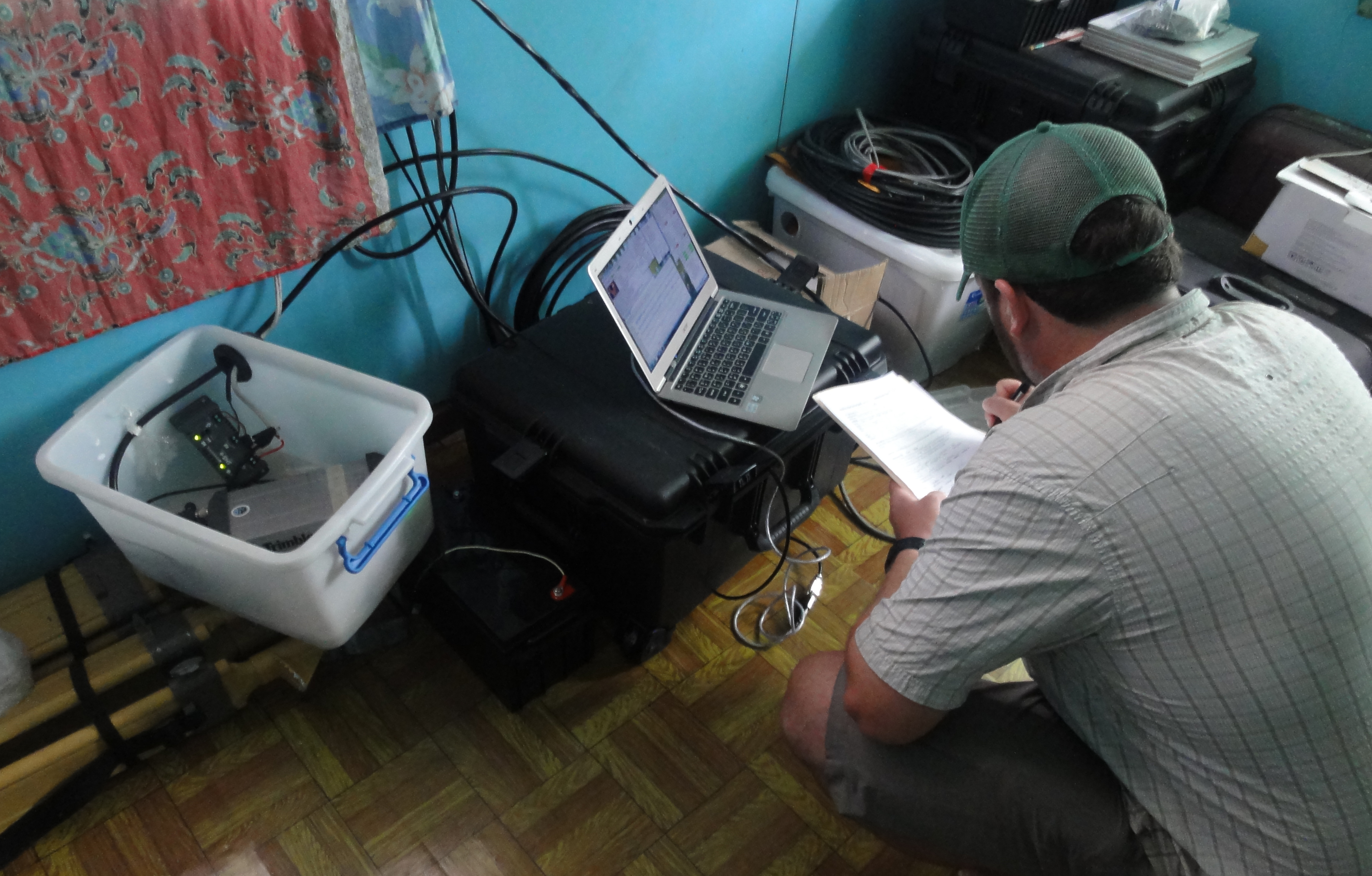
Jake Walter, research associate at the University of Texas Institute for Geophysics (UTIG), spent two weeks in the Solomon Islands at the end of September. Midway through his field work he sent this dispatch back to UTIG chronicling his experiences thus far:
Greetings from the Solomon Islands where we just completed a servicing run of seven broadband seismometers and 11 GPS stations. Over the past week we have used small, open boats to traverse across lagoons and to different islands. After a few hours in the boat, we typically arrive at a village and then go to the house or hut where the station dataloggers are housed.
The rainforest is very dense here, and because we use solar panels to power the stations they are placed in villages where the canopy is already cleared to allow sunlight to hit the panels. There is a sense of pride and importance in watching over the equipment, and some stations are located at the local chief’s house. When we arrive at a station, a crowd usually develops and many shy and curious children appear.
If all goes well, a station visit is less than an hour. The challenge is that sometimes the battery is dead, the solar charge controller isn’t working or the scientific equipment is malfunctioning. This results in a much longer station visit as we try to troubleshoot the issue and replace equipment with spares that we carry with us from the boat. The fieldwork is very tropical and makes it sometimes difficult to work with beads of sweat getting into our eyes with mosquitoes and flies buzzing around. We most definitely take medication to prevent malaria.
All this hard work is to better understand subduction zones. The Western Solomon Islands are unique amongst the subduction zones of the world because many of the islands here directly overlay the shallowest zone of the plate interface. The degree of elastic coupling and other conditions in this zone is important for better understanding large earthquakes, seismic slow slip and other processes. We hope to better understand the dynamics of subduction using a combination of seismic and geodetic techniques. On this trip, collaborators from Taiwan, Yu-Ting and Chin-Shang, graduate students from National Taiwan University and Academica Sinica have all assisted.
The Solomon Islands are a truly important natural laboratory and our efforts have the potential to reveal a great deal about subduction zones. We hope our work is a springboard for other studies, including ship-board geophysics and geochemical studies.
